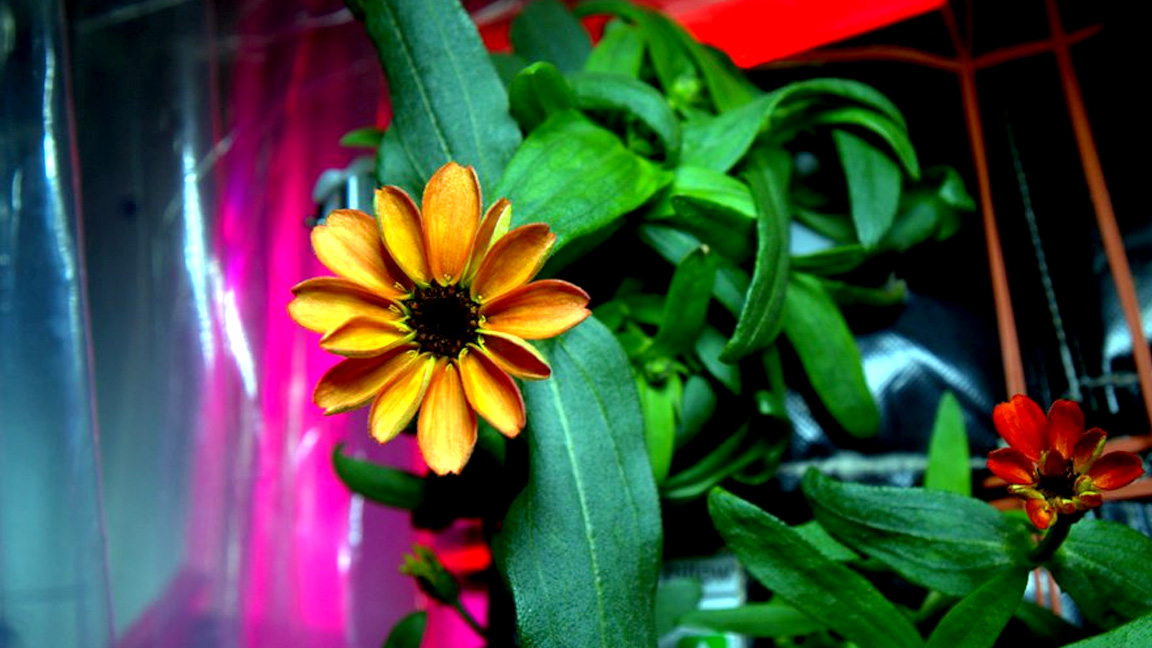Take a look at the first-ever flower to bloom in space
"The Martian" would be proud

Astronauts have successfully nursed the first-ever flower grown in space to full bloom. Not only will this add some color to the drab halls of the International Space Station, but this development marks the next major step in learning to grow sustainable crops in orbit.
NASA astronaut Scott Kelly debuted the full-grown zinnia plant this weekend, bringing a satisfying conclusion to a project that was originally hurtling towards failure.
The project, which began this past fall, took a turn for the worse as the zinnia plants used were showing signs of extreme stress, namely guttation (pressure that forces out excess water from a plant) and epinasty (the curling of leaves that usually occurs when the roots are flooded.)
The culprit, revealed to be too much humidity coupled with too weak an airflow, proved doubly disastrous for the dying zinnias as the environment became ripe for mold to set in.
"Our plants aren't looking too good. Would be a problem on Mars," plainly observed Kelly on his Twitter alongside the embedded photograph of the ailing plants.
Making a contemporary reference to The Martian, Kelly also added that he was "going to have to channel [his] inner Mark Watney" in order to keep the plants alive.
Kelly took matters into his own hands, manually caring for the plants in place of the automated systems. The presence of mold even presented a moment of serendipity as samples were then collected and frozen for later study back on Earth.
Get daily insight, inspiration and deals in your inbox
Sign up for breaking news, reviews, opinion, top tech deals, and more.
Despite having to take over at the ISS' autonomous gardener, Kelly was not swayed. He even demonstrated that a person keeping eye on things could be instrumental in growing food in orbit, especially as the possibility of space colonization nears ever closer.
"You know, I think if we're going to Mars, and we were growing stuff, we would be responsible for deciding when the stuff needed water," said Kelly on NASA's official webpage. "Kind of like in my backyard, I look at it and say 'Oh, maybe I should water the grass today.' I think this is how this should be handled."
Following the success of the zinnia plants, the ISS plans to kick things up a notch in the coming years, with plans to upgrade from growing flowers to dwarf tomato plants in 2018.
Watch out, Tang — fresh-squeezed space oranges may not be too far away!
Top Image Credit: Scott Kelly (via Twitter)
